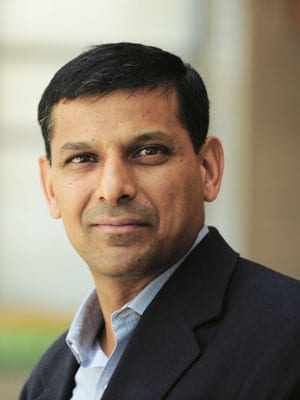
Raghuram G. Rajan: There is No Substitute for Good Regulation
Raghuram G. Rajan, economic advisor to the prime minister, talks to Forbes India about things India has got right so far and the lessons that it still must learn in managing its complex economy
US Treasury Secretary Timothy Geithner said in a BBC interview prior to the G-20 meet in June that the US can no longer drive global growth. What role do you expect India to play in spearheading some of this growth?
The tenor of Secretary Geithner’s comments were aimed at countries running large trade surpluses like Germany, Japan and China, urging them to increase their domestic growth so that they don’t rely so much on the US economy to be the engine of growth. I think India is already doing its best in energising domestic growth and it doesn’t have to do more.
Is there a lesson for India from China’s trade surplus-driven economy and America’s credit-driven consumption model, both of which are unsustainable extreme examples?
It’s not so much a lesson India has to learn, but a lesson it has to teach. India seems to be doing perfectly well without emphasising on exports too much because we liberalised late. I think that’s serving India well. Perhaps other countries should learn [from India’s success] that it’s possible to grow with domestic demand, especially if you’re a large country.
The main concern now is the overheating of the Indian economy. The RBI adopts a supply side approach to managing inflation. Your thoughts?
India is growing very fast and given the limited infrastructure, and given that the pool of educated people is relatively small compared to our use of them, we are running up against supply constraints both on things like transport and also capital. This is classic demand-led inflation and we ought to be very vigilant about it getting out of hand.
In your recently released book Fault Lines, you wrote about preventing systemic financial market failure without imposing huge costs associated with higher equity capital. Is there a lesson for India?
I’m glad to see that organisations like the SEBI are trying to make Indian markets deeper and more vibrant rather than trying to shut them down. I think a lesson to takeaway is that there is no substitute for good regulation. Regulators need to be on top of things and need to intervene in a transparent and predictable way when things are off track. The second lesson we should internalise is that accidents do happen; banks will make a mess of things every once in a while. So we should have resolution mechanisms, which are reasonable and help us deal with problems as they arise.
We should be prepared for these eventualities by having ways of dealing with distress. I think on the ways of dealing with distress India is not as developed as it should be and we should spend more time thinking about that.
China is appreciating its currency against the US dollar. Your thoughts with regard to India?
If the Chinese allow the exchange rate to appreciate more — they haven’t said how much, they’ve just agreed to be flexible — it would relieve some of the burden of countries that are trying to hold down the exchange rate anticipating that they’ll be unable to compete with the Chinese. So to that extent India’s macro-economy management will become a little easier.
Would you agree that unlike the US, India is less inclined to incentivise bad business management?
I think the high-powered incentives that the US has are present only in some areas in India today. There’s a good side and a bad side to it. The good side is that every once in a while, you get some really good performance. The bad side is it can go as haywire as it went. If you can incentivise performance through culture rather than through remuneration, that’s fantastic. But often, cultural norms tend to be insufficient. It may be that as India becomes more competitive, it gets some of what the US has. But we have to be careful about not going overboard.
(This story appears in the 30 November, -0001 issue of Forbes India. To visit our Archives, click here.)





